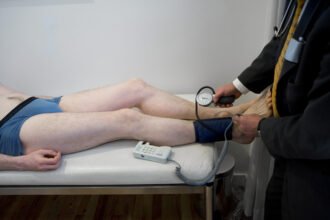For the past many years, I’ve been strongly advocating that the best model for electronic health record interoperability is one that is cloud-based and puts the patient/citizen at the center.
For the past many years, I’ve been strongly advocating that the best model for electronic health record interoperability is one that is cloud-based and puts the patient/citizen at the center. Having just returned from HIMSS where EHR interoperability (or rather the lack of interoperability) was once again a topic of much discussion, I must again conclude that the only model that makes sense, and is actually achievable and more affordable, is exactly what I have been proposing.
My colleague, Dr. Harry Greenspun of Deloitte, provides a nice summary of where things stand on the interoperability landscape in a recent blog post and video. He believes as I do that the solution isn’t likely to come from government, at least not alone. He also uses some good consumer analogies taken from the retail industry to explain how things ought to work in healthcare.
I’ve always believed that a significant reason why we haven’t achieved a truly interoperable system for health information exchange is because of too much resistance from vested interests on multiple fronts, and also because we are making everything about it way more complicated than it needs to be. Healthcare providers who create health information about us, and the EHR vendors who develop the software that holds the information, really have no incentives to freely exchange health data. Furthermore, even if such incentives were created, where in all of this is the patient/citizen, who after all is the person the information is all about? Nowhere to be seen, I fear.
On complexity, it seems the vision is for some kind of network that transacts the multi-directional, perfect exchange of health information between every stakeholder in the ecosystem of care. That means from the largest multidisciplinary health institutions to the most rural physician’s office and everything in between including lab, imaging centers, transitional care centers, and on and on. Furthermore, the vision is for a system that transmits not just some health data, but virtually all of it in its entirety. Nirvana, yes. Affordable, achievable, and likely? I don’t think so.
 Why doesn’t government, if it is to have a roll at all, recommend a different path? Why not pass legislation to provide every citizen with a cloud-based account from a variety of trusted, certified vendors, in which the health data produced about them could be aggregated and deposited around them. Let’s just start with some basic information; demographics, payor information, up-to-date current medications, allergies, immunizations, and a medical problem list. Let’s give each citizen a key to their vault. As the citizen/patient moves through the ecosystem of care, he or she can provide access to his or her vault. In other words, the information travels with the patient. As new information is generated, the vault is updated. Such a system would provide not just a national health information exchange, but rather one that is global and available anywhere wherever in the world that the patient might travel. While every patient would be required to have a vault, just as we are now required to have health insurance, every patient would have a choice among a variety of trusted vendors. So long as it is mandated that vendors must be able to exchange the patient record in its entirely to any other trusted vendor of the patient’s choice, I believe such a system would work in the best interest of the citizen/patient.
Why doesn’t government, if it is to have a roll at all, recommend a different path? Why not pass legislation to provide every citizen with a cloud-based account from a variety of trusted, certified vendors, in which the health data produced about them could be aggregated and deposited around them. Let’s just start with some basic information; demographics, payor information, up-to-date current medications, allergies, immunizations, and a medical problem list. Let’s give each citizen a key to their vault. As the citizen/patient moves through the ecosystem of care, he or she can provide access to his or her vault. In other words, the information travels with the patient. As new information is generated, the vault is updated. Such a system would provide not just a national health information exchange, but rather one that is global and available anywhere wherever in the world that the patient might travel. While every patient would be required to have a vault, just as we are now required to have health insurance, every patient would have a choice among a variety of trusted vendors. So long as it is mandated that vendors must be able to exchange the patient record in its entirely to any other trusted vendor of the patient’s choice, I believe such a system would work in the best interest of the citizen/patient.
I think the enormous complexity and cost of the health information exchange models being proposed by both industry and government, are exactly the reasons why so little progress has been made. Is it time to take a different course? I think it is. Let’s put patients at the center.






